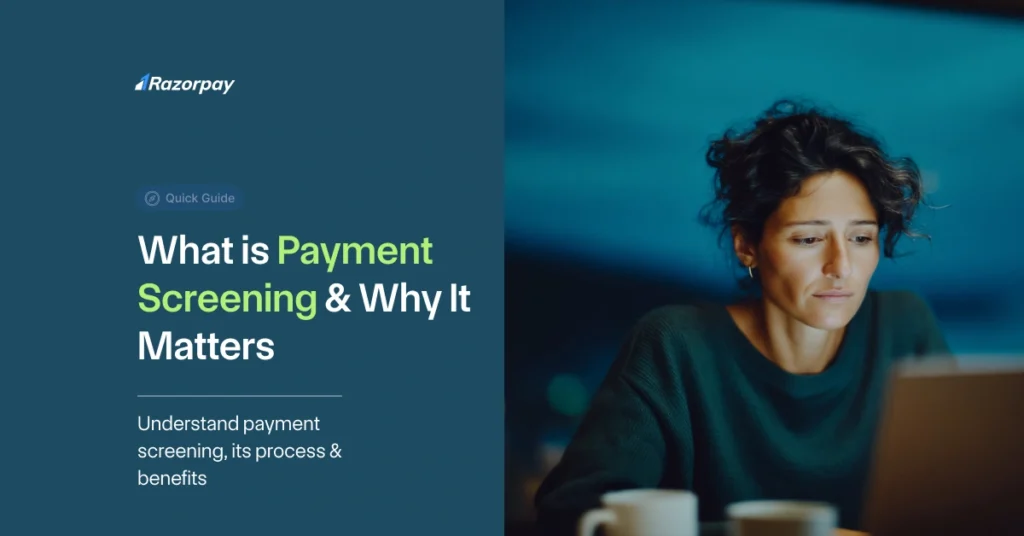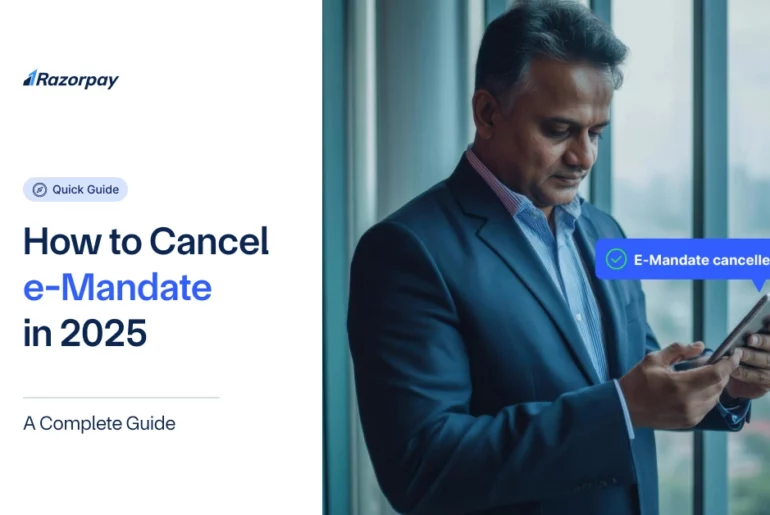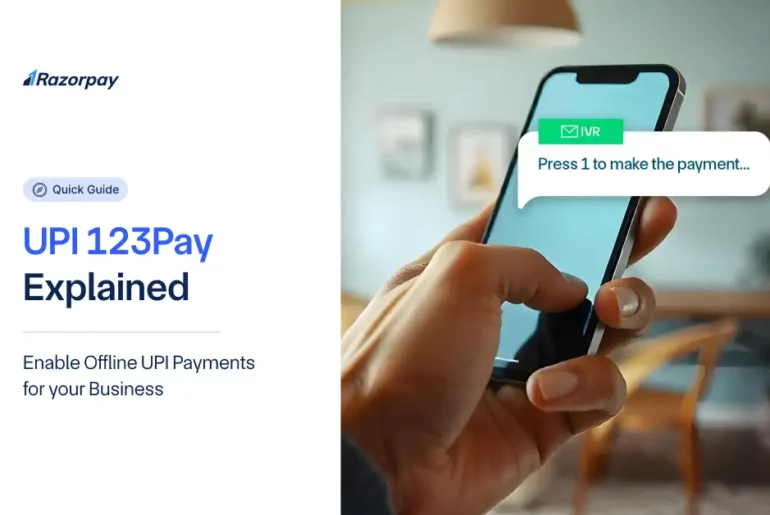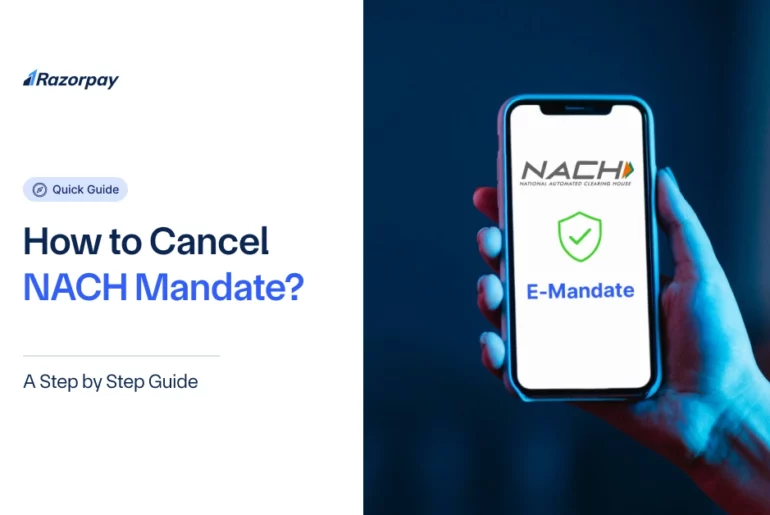The past decade saw India’s population transition from a cash-led market to a digital-first market. The advent and evolution of tools like BHIM and UPI have given rise to several new forms of buying and selling, with emphasis on online shopping. On the other hand, it has also led to a rise in financial fraud cases. Payment screening is the process of checking transactions in real-time, helping merchants and business owners keep track of their money and preventing related fraudulent incidents. This article aims to educate our readers about why payment screening is essential for business owners in 2025, what the process is and how it helps in limiting fraudulent activities.
Key Takeaways
With advancements in digital finance, the level of economic fraud has also increased. To counter this menace, financial regulatory bodies have introduced payment screening. This is more beneficial to businesses in India.
Payment screening is the process of collecting vendor data, analysing and validating it, thus preventing any illegal transactions from happening, before they are approved. It is part of transaction screening, however, it occurs before a transaction is approved.
What Is Payment Screening?
Payment screening refers to the analysis, verification and finally, validation of transactions from other vendors or customers from start to finish, in real-time. Payment screening not only helps in the detection and prevention of online fraud, but also ensures your business complies with the financial safety standards established by Indian regulatory bodies, garnering loyalty and trust. In 2025, it is a necessary layer of protection for merchants to ensure they are not accidentally contributing to money laundering schemes. It is part of transaction monitoring, in which transactions are monitored in real-time. Payment screening occurs right before a transaction occurs, validating a customer’s financial details before the transaction is approved.
Key Benefits Of Including Payment Screening
- Prevents fraud by detecting unauthorized or risky transactions even before they are processed.
- Ensures compliance with anti-money laundering rules and counter-terrorism financing laws.
- It automates risk detection by screening customer/vendor payment details before any transaction is approved, thus reducing the possibility of human error in verifying customer’s financial credentials.
- One of the key highlights of including payment screening as part of your transaction algorithm is that it prevents businesses from accidentally contributing to any money laundering scheme.
How Does Payment Screening For Businesses Work?
Data Collection and Validation
When a payment is initiated, the vendor/customer’s details are collected, along with other details such as the transaction amount, sender/receiver’s details, geographical location, etc. These details are required to ensure the accuracy and completeness of of the verification process.
Data Standardization
The collected data is consolidated to match the requirements of the screening algorithm. This step makes it more efficient and drives relevant results.
Customer Authentication
At this stage, the customer/vendor’s details are authenticated using the KYC (Know Your Customer) or KYB( Know Your Business) details. This step helps the system determine the genuineness of a customer’s particulars.
Risk Assessment
At this stage, screening algorithms scan through the customer/vendor’s transaction history, past transactions, credit scores, etc. to determine a risk score. Based on their financial profiles, each customer is assigned a score. High-risk transactions may be subjected to further scrutiny in the later stages of the transaction.
Screening
Once the customer passes through the risk assessment, their profile details are matched against block lists, international sanctions list, etc. to foolproof the transactions. For high-value business transactions, screening process is absolutely essential.
Behavioral & Geo-location Analysis
A customer/vendor’s transaction history is duly monitored, and any past delay in paying their dues are noted by payment screening systems.
Alert Generation and Escalation
If a transaction is flagged (due to suspicious elements or matches with lists), it is automatically held and escalated for manual review by compliance personnel.
Investigation and Reporting
Compliance officers investigate flagged transactions, either approving, rejecting, or reporting them as required by regulations, while maintaining thorough audit trails and documentation.
Razorpay’s Role In Payment Screening
Razorpay’s payment gateway is quickly becoming one of the most sought after payment solutions as we employ robust technologies that are compliant with AML (anti-money laundering) laws, and continuous risk monitoring for each of our member businesses.
Core Payment Screening Features
KYC and Background Check
Before onboarding any business, Razorpay conducts a thorough background check through a comprehensive KYC process. We vet the merchant’s legitimacy by looking into their past transactions and credit history. This filters out any fraudulent businesses from being part of our partner program.
Automated AML checks
Razorpay integrates AML (Anti-Money Laundering) screening into its systems, comparing transaction details against sanctions, watchlists, and PEP databases. This ensures regulatory compliance and blocks transactions linked to suspicious or high-risk sources.
Real-Time Fraud Detection
All transactions processed through Razorpay are continuously analyzed using AI algorithms. The system monitors patterns such as transaction volume spikes, international order anomalies, and behavioral deviations to flag or block suspicious payments.
Transaction Monitoring & Risk Engine
Razorpay’s risk engine scores transactions using factors like merchant data, customer history, device information, and behavioral analytics. Low-risk payments pass smoothly, while high-risk ones require extra authentication or manual review.
Compliance Automation
For cross-border payments, Razorpay automates compliance checks including RBI licensing requirements, local tax rules, and AML protocols, supporting both domestic and international merchants without manual paperwork.
To summarize, Razorpay employs robust payment screening procedures to ensure secure, seamless and quick transactions, garnering trust and confidence among customers and vendors alike.
Benefits for Merchants Using Razorpay
- Seamless integration into POS and online flows.
- Real-time fraud detection reduces chargebacks.
- Saves operational costs on manual fraud review.
- Unified reporting across payment modes.
Transform your business today! Partner with us.
Common Challenges in Payment Screening
False Positives (Blocking Genuine Customers)
When screening algorithms are programmed with too many restrictions, it affects how vendors are screened. Sometimes, long-time associates can also be blocked from transacting with your business if screening rules are include too restrictive.
Integration Complexity
Some payment screening systems may not sit well with your website or shopping app, causing hassles during transactions. However, Razorpay’s payment solutions are compliant with all major e-commerce platforms, eliminating this issue.
Conclusion
AI-driven adaptive models are being trained to include payment screening as part of their transaction screening algorithms, helping curb any immediate threat to your business. Real-time global fraud intelligence sharing can contribute to intelligence agencies on a higher level, thus connecting financial regulatory authorities on a global scale. As time goes on, the future of digital payments seems more restricted with strict rules and programs being developed to curb financial fraud. If you own a business, regardless of its scale, consider including payment screening as part of your transactions by collaborating with payment solutions providers. Razorpay’s adaptive algorithm makes it one of the most sought-after payment solutions providers in India. For impactful business, always choose the best.
FAQs
Is payment screening only for large businesses?
Payment screening can be incorporated for any business, regardless of their size and scale. However, since payment screening features are costly, you must consider your financial limitations before making a decision.
Can payment screening slow down checkout?
Yes, payment screening can slow down your checkout if the screening process is not optimized for real-time transaction speeds. In-depth checks can delay checkout process, leading to a bothersome process.
Do I still need it if I already have a payment gateway?
Payment gateways only facilitate payment processing. Many include the basic fraud prevention tools, however, payment screening includes in-depth checks that comply with AML laws, something that payment gateways may not be equipped with. Hence, even if you have deployed a payment gateway, it is important to include a payment screening algorithm in tandem with the gateway.
Does Razorpay offer built-in fraud screening tools?
Yes, Razorpay offers built-in fraud screening tools as part of its payment processing platform. It uses advanced fraud detection systems that monitor transactions in real time, analyze behavioral patterns, and apply AI and machine learning to identify suspicious activities.



